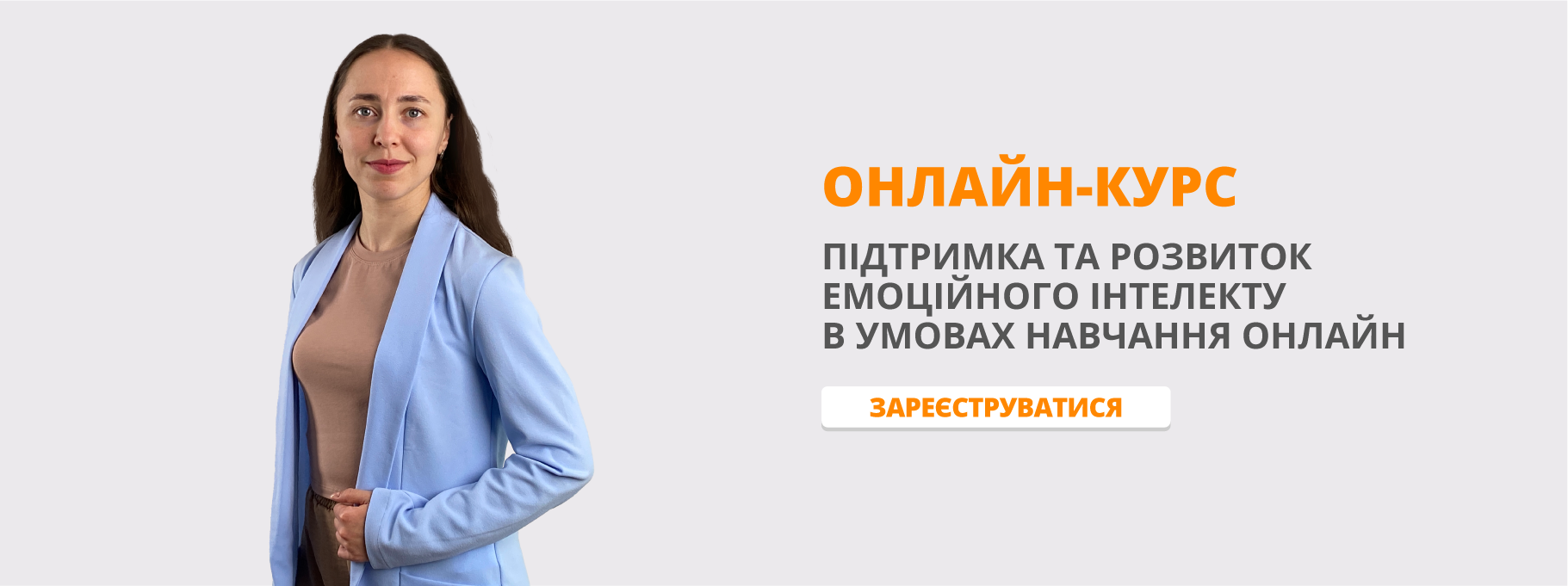Спорт в нашому житті
Комунальний заклад «Запорізька загальноосвітня санаторна
школа – інтернат № 7 I - II ступенів» Запорізької обласної ради
Конспект уроку з англійської мови
« Спорт. Спорт у нашому житті »
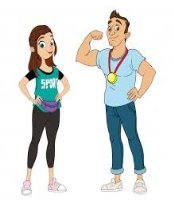
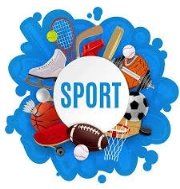
номінація «Спеціальний педагог»
підготувала:
Кобріна Катерина Володимирівна
вчитель англійської мови,
вчитель I категорії
Запоріжжя, 2020
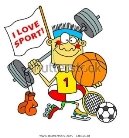 Конспект уроку з англійської мови
Конспект уроку з англійської мови
Клас: 6
Тема. Спорт.
Підтема. Спорт у нашому житті.
Мета: навчальна: закріпити вивчений лексичний матеріал та вміти застосовувати знання на практиці; удосконалювати навички читання, письма, аудіювання та говоріння; сприяти розширенню словникового запасу новою лексикою.
розвивальна: стимулювати розвитку логічного мислення, розмірковувати над завданнями, різнобічно оцінювати ситуацію, аналізувати інформацію з точки зору значимості, важливості та необхідності; сприяти розвитку комунікативних здібностей, розвивати вміння співпраці у групі, розширити кругозір, сприяти розвитку мовних, пізнавальних та інтелектуальних компетенцій;
виховна: виховувати інтерес до різних видів спорту, усвідомити важливість занять спортом, поважати різні точки зору однокласників
Тип уроку: урок закріплення і застосування знань, умінь і навичок
Вид уроку: нестандартний урок, квест - урок
Форми роботи: індивідуальні, парні, групові
Методи роботи: словесні, наочні, практичні, застосування отриманих знань, умінь і навичок, частково - пошукові
Обладнання: підручник, робочий зошит, ілюстрації, предметні картки, картки з граматичним матеріалом, проектор.
Очікуваний результат: удосконалити комунікативні здібності учнів ( розповідати, характеризувати, висловлювати свої враження, захоплення щодо певноговиду спорту), закріплять граматичний матеріал, щодо вживання прислівників частотності (Adverbs of frequency) у теперішньому часі (Present Simple).
Використані джерела:
- Карпюк О.Д.: English. Student’s book (підручник з англійської мови для 6 класу загальноосвітніх навчальних закладів). Тернопіль.: "Лібра Терра", 2015 – 231с.
- Joanna Kosta, Melanie Williams Prepare! Student’s book Level 2. Cambridge University Press and UCLES 2015
- Garan Holcombe Prepare! Workbook Level 2. Cambridge University Press and UCLES 2015.
- .https://naurok.com.ua/urok-z-angliysko-movi-dlya-7-klasu-sport-vid-a-do-ya-7968.html
- https://naurok.com.ua/konspekt-uroku-sport-znachennya-sportu-ta-zdorovogo-sposobu-zhittya-7-klas-12932.html
- https://vseosvita.ua/library/konspekt-uroku-na-temu-sport-in-our-life-7-klas-208768.html
-
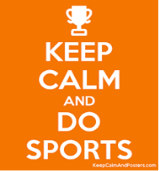 https://naurok.com.ua/vidkritiy-urok-z-angliysko-movi-po-temi-sport-u-6-klasi-32202.html
https://naurok.com.ua/vidkritiy-urok-z-angliysko-movi-po-temi-sport-u-6-klasi-32202.html
Хід уроку
I. Організаційна частина (4 хвилини).
1.1 Привітання.
Teacher: Good morning, boys and girls!
How are you getting on? I’m sure you do sports, you’re in a good mood and eager to work upon the topic “Sport in our life”.
1.2 Повідомлення теми та мети уроку (уведення в іншомовну атмосферу).
Teacher: Dear children, today we have the last lesson of our topic. On this lesson we will do a lot of work today. Let’s take a motto of our lesson “Life is nothing without sport”. Let’s start our lesson.
Today we have a quest lesson. It is devoted to a very important problem. Let’s talk about healthy way of life. Health is the most precious thing in people’s life. We can’t buy it, but we can do a lot to keep it.
1.3 Мотивація навчальної діяльності (метод “Мозковий штурм”)
Teacher: What words do you associate with the topic «Sports»? (team, baseball, basketball, sailing, baseball, snowboarding, volleyball, cycling, skating, running, hockey competition, game, health, energy, gym, stadium, field, Olympics…)
ІІ. Основна частина
(3 хвилини. Учні обирають назву та девіз для своєї команди.)
Teacher: Sport is a competition. That’s why I’d like to unite you into 3 teams. You should give the names to your teams, do wishes to your opponents and take the rules of our game.
Ex.: Team1: The name of our team is “Brave hearts”. We wish you every success.
Team2: We are “Sports Stars”. We wish you the best of luck!
2.1 Швидке читання (групова робота 8 хвилин).
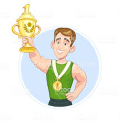 Teacher: Let’s start our competition. What is the biggest sports competition in the world?
Teacher: Let’s start our competition. What is the biggest sports competition in the world?
PP: THE OLYMPIC GAMES
Teacher: Yes, You are right. Let’s read a text and find the answers.
Station № 1 “The Olympic stars”.
Учні отримують розрізаний на частини текст nа перелік питань. Кожен читає свій текст (2 частини) та в групі намагаються знайти усі відповіді на питання. Учень котрому дісталися питання захищає відповіді групи.
 The Olympic games
The Olympic games
The Early Games
 The first Olympic Games were held at a place called Olympia in Greece in 776 BC. At first, there was only one race. It was a 170 metre running race called the «Stade». In the race, local athletes ran across a piece of ground and the whole event was finished in one morning. However, it was very popular and athletes spent weeks practicing and training for the event. Soon more races and competitions were introduced and people began to travel from other countries to the part in them. However, when the Romans invaded Greece some Greek traditions ended. Then, in AD 393, the new Roman Emperor decided to stop the Game completely. Gradually, earthquakes and floods buried the site of the ancient festival.
The first Olympic Games were held at a place called Olympia in Greece in 776 BC. At first, there was only one race. It was a 170 metre running race called the «Stade». In the race, local athletes ran across a piece of ground and the whole event was finished in one morning. However, it was very popular and athletes spent weeks practicing and training for the event. Soon more races and competitions were introduced and people began to travel from other countries to the part in them. However, when the Romans invaded Greece some Greek traditions ended. Then, in AD 393, the new Roman Emperor decided to stop the Game completely. Gradually, earthquakes and floods buried the site of the ancient festival.
The first modern games
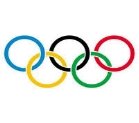 For hundreds of years, the Games were forgotten. Then, in 1896, a French sportsman called Baron de Coubertin decided to bring them back. He believed that sport was an important part of peoples’ education and that it made them better people. He studied the history of the Ancient Games and decided to organize an international event with many of the traditions from the original Games. He finally created the International Olympic Committee in 1894. Two years later, in 1896, the first modern Olympic Games took place in Athens and fourteen countries took part. Their motto was «Citius, Altius, Fortius» which is a Latin expression that means «Faster, Higher, Stronger». Baron de Coubertin believed the Games would be a great way to bring people from lots of different countries together to compete against each other and work to be the best sports people that they could be.
For hundreds of years, the Games were forgotten. Then, in 1896, a French sportsman called Baron de Coubertin decided to bring them back. He believed that sport was an important part of peoples’ education and that it made them better people. He studied the history of the Ancient Games and decided to organize an international event with many of the traditions from the original Games. He finally created the International Olympic Committee in 1894. Two years later, in 1896, the first modern Olympic Games took place in Athens and fourteen countries took part. Their motto was «Citius, Altius, Fortius» which is a Latin expression that means «Faster, Higher, Stronger». Baron de Coubertin believed the Games would be a great way to bring people from lots of different countries together to compete against each other and work to be the best sports people that they could be.
The Olympic Rings
 The Olympic flag was first flown in the 1920 Olympics. It has become the most famous symbol of the Olympic Games. The flag has a white background and each ring is a different colour: red, blue, green, yellow and black. These colours were chosen because every country has one of these colours in its national flag. It is a symbol of the way that all the countries come together to take part in an international sporting competition.
The Olympic flag was first flown in the 1920 Olympics. It has become the most famous symbol of the Olympic Games. The flag has a white background and each ring is a different colour: red, blue, green, yellow and black. These colours were chosen because every country has one of these colours in its national flag. It is a symbol of the way that all the countries come together to take part in an international sporting competition.
The Olympic Flame
 In Ancient Greece a flame was always lit and then kept burning until the end of the Olympic Games. In the modern Games, the Olympic Torch is lit at the ancient site of Olympia in Greece. Then it’s taken from Olympia to the city where the Games are hosted. The Games are hosted in a different city each time. The torch is passed from runner to runner as it travels from Olympia to the Olympic stadium in the hosting city. When it passes through cities, hundreds of people come out onto the streets to watch. Often, of course, the flame is transported by train or plane. The flame is then kept alight until the Games have ended.
In Ancient Greece a flame was always lit and then kept burning until the end of the Olympic Games. In the modern Games, the Olympic Torch is lit at the ancient site of Olympia in Greece. Then it’s taken from Olympia to the city where the Games are hosted. The Games are hosted in a different city each time. The torch is passed from runner to runner as it travels from Olympia to the Olympic stadium in the hosting city. When it passes through cities, hundreds of people come out onto the streets to watch. Often, of course, the flame is transported by train or plane. The flame is then kept alight until the Games have ended.
The Olympic medals
 Olympic medals are designed for each Olympic Games. So every year, the medals are completely different. There is a medal ceremony after each Olympic event. They raise the flags of each winning athlete’s country and play the national anthem of the gold medallist. Then they give the three athletes their medals: bronze, silver and gold.
Olympic medals are designed for each Olympic Games. So every year, the medals are completely different. There is a medal ceremony after each Olympic event. They raise the flags of each winning athlete’s country and play the national anthem of the gold medallist. Then they give the three athletes their medals: bronze, silver and gold.
The Opening Ceremony
 Today every Olympic Games starts with an opening ceremony. There are fantastic, colourful displays of music, singing and fireworks and people dancing in traditional costumes. The opening ceremony shows the culture and the traditions of the country in which the Olympic Games are being hosted. There is a procession of athletes in their teams, which is always led by the Greek team. There are speeches. Then the Olympic flag is raised and, finally an athlete brings the Olympic torch into the stadium and lights the Olympic flame. When the Olympic flame has been lit, the Games can begin!
Today every Olympic Games starts with an opening ceremony. There are fantastic, colourful displays of music, singing and fireworks and people dancing in traditional costumes. The opening ceremony shows the culture and the traditions of the country in which the Olympic Games are being hosted. There is a procession of athletes in their teams, which is always led by the Greek team. There are speeches. Then the Olympic flag is raised and, finally an athlete brings the Olympic torch into the stadium and lights the Olympic flame. When the Olympic flame has been lit, the Games can begin!
The closing ceremony
The Games always end with a closing ceremony. The athletes come back into the stadium together. There is a display from the next hosting country and finally, the Olympic flame is put out.
Answer the questions.
1. Where did the first Olympics start?
2. When were the first modern Olympics?
3. Where does the journey of the Olympic torch begin?
4. Who can take part?
2.2 Актуалізація лексичних знань (робота з картками - 8 хвилин)
Station № 2 “The Lexical Stars”.
Teacher: Are you ready to compete? We have first task with flashcards.
1. Which of these sports do you know? Match them to the pictures.

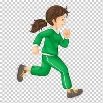

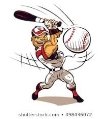

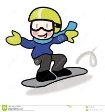
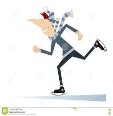


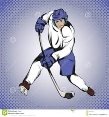
• rugby
• badminton
• sailing
• baseball
• snowboarding
• volleyball
• cycling
• skating
• running
• hockey
2. Complete the table with the words from words above:
(rugby, badminton, sailing, baseball, snowboarding, volleyball, cycling skating, running, hockey).
|
play |
go |
|
rugby |
running |
|
|
|
|
|
|
|
|
|
|
|
|
Keys: play (rugby, baseball, volleyball, badminton, hockey)
go (running, snowboarding, cycling, sailing, skating)
Teacher: Look at your flashcards again. And give me your answers.
1. Which of the following sports are:
– water sports?
– contact sports?
– outdoor sports?
– winter sports?
– summer sports?
2. What is your favourite sport?
3. Which sports are popular in Ukraine / Britain?
Yes, you are right! They are cycling and sailing.
Фізхвилинка
Учню пропонується очима в повітрі прописати слова “Game”, “Sport” та “Ball”. А іншим членам команди потрібно здогадатися, що саме він написав очима.
2.3 Читання (робота в парах 8 хвилин).
Station № 3 “The New stars”.
Teacher: Read about Jess and James and answer the questions.
(Учні працюють в парах. Потім обмінюються питаннями й своїми відповідями з іншої парою своєї команди та перевіряють відповіді.)
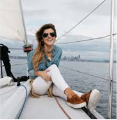 Two young sports stars
Two young sports stars
Jess Barnes received the Young Sailor of the Year award and she
was only thirteen!
“It’s amazing”, says Jess. “I love sailing. It’s my life. I always go
sailing at weekends. I’m never bored. I sometimes go sailing in a
team but I go sailing alone, too. In the holidays, I usually go to different sailing competitions. Some of these are in other countries. It’s difficult to get a place in the competition teams. I need to work hard but I know I can do it! I want to sail and to win.”
 “I didn’t like playing rugby and football. They’re boring! I wanted to try a different sport. Cycling is different and no one else at my school does it”, says James Miller.
“I didn’t like playing rugby and football. They’re boring! I wanted to try a different sport. Cycling is different and no one else at my school does it”, says James Miller.
“I really love the sport and it keeps me fit. I often go cycling
with my friends. It’s good practice for my team competition.
I’m sometimes tired but then I think about the Olympics.
I want to go there and win.
Remember – you don’t find many world champions on the sofa!”
Questions for 1st pair:
1. What does Jess do on Saturdays and Sundays? ___________________________
2. Who wants to win at the Olympics? ___________________________________
3. What does James think of rugby and football? ___________________________
4. Why does Jess need to work hard? ____________________________________
Questions for 2nd pair:
1. Does Jess go sailing alone or in a team? ________________________________
2. How many people at James’s school go cycling? _________________________
3. What helps James when he is tired?____________________________________
4. Who does their sports in other countries? ______________________________
2.4 Актуалізація граматичних структур. Grammar use adverbs of frequency (9 хвилин).
Station № 4 “The Grammar Stars”.
Teacher: We use the Present Simple to talk about things we do often or every day.
I play football after school every day.
He doesn’t go skating in winter.
- Look at the texts and find all the adverbs of frequency.
How many the adverbs of frequency you can find? (індивідуальна робота, перевірка в команді)
- Choose the right words to complete the rules (обговорення в групі).
In sentences with the verb be, we put the adverb of frequency before / after the verb.
In sentences with the Present Simple, we put the adverb of frequency before / after the verb.
Наступні 3 завдання кожен учень у команді пише 1 речення / питання. (перевірка робіт у команді):
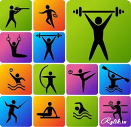 3. Complete the sentences with the Present simple form of the verbs in the box
3. Complete the sentences with the Present simple form of the verbs in the box
(play, watch, not go, study, not play, go)
1. I … basketball in a team.
2. My teacher … sailing when the weather is bad.
3. My brother … TV after dinner every day.
4. … your mum … running before work?
4. Rewrite the sentences with the adverb of frequency in brackets in the correct place.
e.g. I’m late for school. (always) I’m always late for school.
1. We play badminton. (never) _________________________________________
__________________________________________________________________
2. My dad doesn’t go running. (often) ___________________________________
__________________________________________________________________
3. My friends and I go cycling. (often) ___________________________________
__________________________________________________________________
4. We aren’t bored in the our sports lesson. (usually) ________________________
__________________________________________________________________
5. Put the words in order to make questions. Then write true answers for you.
e.g. play / you / tennis / how often / do / ?
How often do you play tennis? – I sometimes play tennis.
1. you and your friends / go / often / sailing / do / ?
__________________________________________________________________
2. you / sometimes / bored / are / at home / ?
__________________________________________________________________
3. dinner / how often / cook / you / do / ?
__________________________________________________________________
4. your best friend / how often / watch / does / TV / ?
__________________________________________________________________
III. Заключна частина
Підведення підсумків уроку (бесіда з учнями) (3 хвилини).
1.Рефлексія.
T: Today we spoke about sports.
Why is it important to go in for sports?
What does sport give to our health?
- I go in for sport because I want to be healthy. What about you?
P1: I go in for sport because sport is good for everybody.
P2: I go in for sport because it helps us strong and healthy.
P3: I go in for sport because it gives me energy.
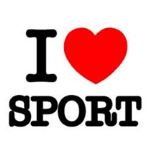
1. What sport do you do?
2. Do you do this sport alone or in team?
3. When do you do this sport?
4. How often do you travel to competitions?
5. Is this a difficult sport to learn and do? Why?
6. What competitions do you want to win?
2. Домашнє завдання. (2 хвилини)
Make your own poster «I’M YOUNG SPORTS STAR».
Imagine, you are a young sports star. Answer these questions. Make notes.


про публікацію авторської розробки
Додати розробку
